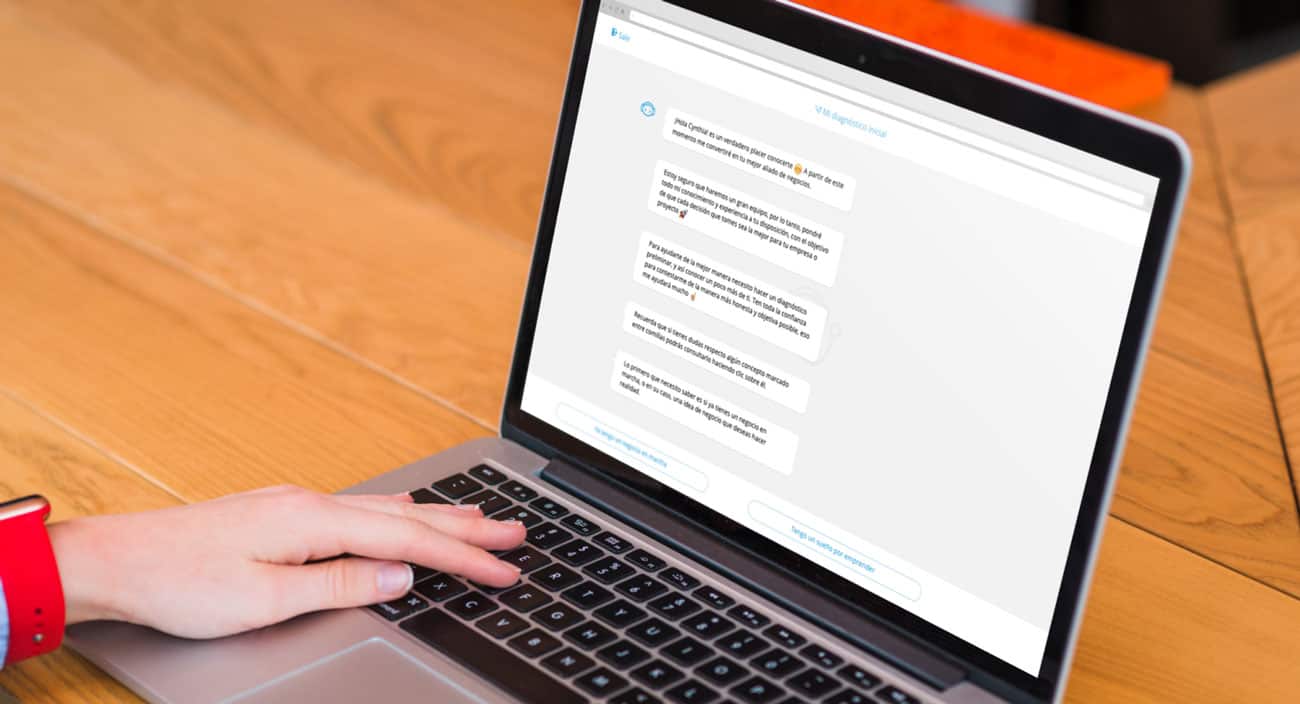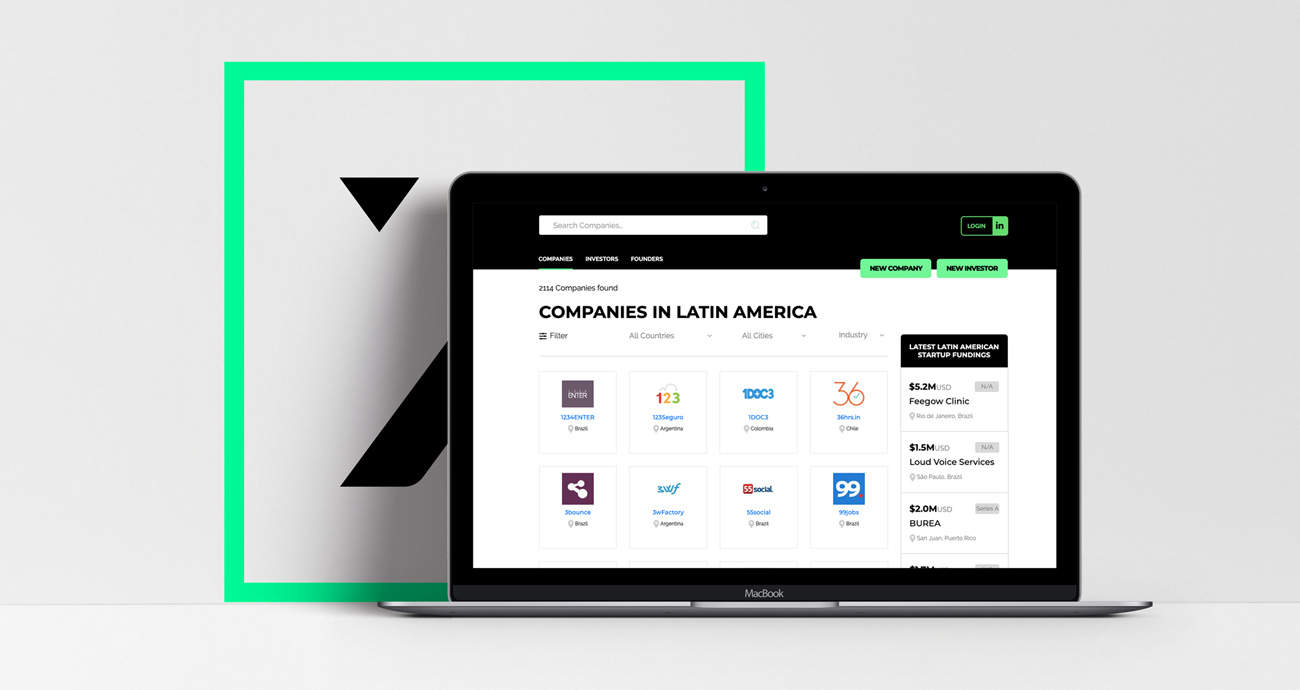Contxto – Imagine being able to strengthen your startup, micro-company or SME without being a financial wizard. Also, envision yourself achieving this level of finesse with assistance from a chatbot.
Surprise surprise, this is actually a reality with IF-BOT. This digitized financial advisor essentially functions like a portable consultant capable of turning your business dreams into a reality. I’m officially baptizing this industry as “fintexting.” Call me out on this one.
In the process, this startup is helping partners prosper in challenging economies like Latin America. Continue reading to learn more.
Snapshot

Description: IF-BOT is a chatbot assistant that helps businesses in making strategic decisions based on their financial needs, goals, and circumstances.
Country: Mexico
Industry: Fintech, AI (Chatbot)
Founders: Luis Alberto Pérez, Laura Elena Espino, Ricardo Espino, Jorge Hernández
Founding Date: 2018
What?
When I asked Luis Alberto to describe his product in one sentence, here’s what he said: “IF is a business assistant aiding business owners in making strategic decisions, specifically based on financial considerations.”
I, personally, believe he missed a key buzzword there. Or two: automatic and virtual. I mean, any finance consultant can be just that, but the interesting part of IF is that it is actually a chatbot. Through a WhatsApp-like interface, users can interact via text with this bot to assess different business scenarios using financial indicators.
I tried out the product to provide a more precise assessment of it.
How?
Okay, so there are two “how” scenarios. One, how does it work for users? Two, how does the technical side of the product function?
With the objective of providing the best user experience, the startup theorized that talking about your business’ financial needs should be as easy as texting your bro/sis the details of last night’s party.
To accomplish this, IF was born with a customizable conversational interface, or chatbot, available 24/7 on its desktop, laptop, and smartphone platforms. This way, you can understand your business margins and ratios, even if it’s at 3 a.m. after happy hour turned into a full-blown outing.
Users specifically login through Facebook or Google. Once you’re in, there’s a HUGE focus on user experience. To become a member, users just need to answer easy some IF-generated questions. Subsequently, IF analyzes the variables and generates follow-up questions.
IF is made for those without any prior financial knowledge or skills.
Development-wise, though he didn’t mention which languages were used, Luis Alberto said there were two methods working in conjunction. Financially, it uses parametric models to validate and process information, resulting in diagnostic outcomes.
Technology-wise, the main rationale behind the product’s functionality is the binomial option trees method or predictive trees. This way, IF can assign order, hierarchy and flow to the question-answer system.
Why?
In Mexico, 80 percent of businesses go under after only 18 months of operations. Keep that in mind.
The ‘why’ behind the product is the business core strategy and modus operandi, according to the CEO. That’s to say, the purpose is “to bring to founders a tool that helps and enables them to stay in the market, through content, information and knowledge that provides them value and that helps them stay in the market.”
IF wants to contribute to diminishing that damaging statistic of 80 percent of Mexican businesses failing. This way, businesses can stay around for longer, not only surviving but also financially profiting. At least that’s the goal for micro-companies and SMEs.
The startup also believes that starting a company is already hard enough. With low financial literacy thrown on top of it, the chances of failure are exponentially high.
Story
So, here’s the story. Once upon a time, Luis Alberto Pérez and Laura Elena Espino used to work closely with the finance industry. They offered consulting services to micro-companies and SMEs needing to raise capital and opting for national development banks.
For companies to be considered creditworthy to raise these funds, many needed to comply with several financial and operating indicators. With this in mind, the two consultants created a system to be able to evaluate the health and potential of a company under the same standards.
This led them to realize that the system was hackable and automatable. With the correct implementation and input of variables, the system worked seamlessly to determine the status of a company, regardless of its stage.
Jorge Alberto Hernández and Ricardo Espino eventually joined forces with Luis Alberto and Laura Elena. They sparkled some tech knowledge into the mix. With this quartet as powerful as the Ninja Turtles, they were able to combine financial expertise and coding mastery to create IF.
From the beginning, the company wanted to tackle Mexico’s huge SME mortality rates with around 80 percent failing within the first 18 months. Permanency and resiliency are huge challenges. With high levels of financial illiteracy and general lack of skils, that’s a recipe for failure.
With IF, founders with little to no financial background can choose the best path for their company to follow based on easy-to-comprehend metrics and feasibility. Entrepreneurs often make a choice to start their companies based on financial assumptions and budgets.
Status
Born and raised in Mexico, this is where the company has over 2,000 monthly active users. IF has also decided to launch in Colombia. There, it’s still an early beta version that has been running for about a month. This collaboration is largely due to IF’s strategic alliance with Valin Capital Corp.
Though the exact terms of the partnership were not disclosed, a quick Google searched told me that IF and Valin Capital Corp actually work together in a commercial alliance. Apparently, IF is the financial advisor for the consulting group.
IF is also participating in FactoryA, an acceleration program created by Scotiabank and Tec de Monterrey. According to Luis Alberto, the program was a very enriching process compared to other acceleration programs he has participated in. Only 10 Latin American companies got to participate, making it quite competitive.
Also, Finnovista has already mapped them out, and so have we!
IF is also a supplier and partner with Startup Mexico, and currently working to build a stronger presence both in Mexico and Colombia. This means working on its marketing and distribution strategies.
Business Model
Here’s what I like. Money!
How do they monetize? Easy, users first get to taste the sweet juice of a financial chatbot through a free diagnostics trial.
The diagnostic is the initial interaction between the entrepreneur and the bot. This is helpful to understand the overall UX, learn how to engage with the assistant, and see whether you like the product or not. I must say, it really got me hooked. I wanted to know more!
Once the diagnostic ends, it suggests three different pricing options based on the stage and needs of the company.
First, there’s “Incubación Financiera” focusing on the very early stages of a project, also known as the powerpoint presentation stage with highly-motivated and caffeinated entrepreneurs working from a noisy Starbucks. There’s an idea but no operations, thus it focuses on the initial development of a business plan and a pre-launch projection.
Second, they have “Plan Emprendedor for running operations. This is for founders wanting to strengthen market validation models and grow.
Finally, “Plan Aceleración” is for the wild ones out there, those who stick to things and get them done. Pretty much those who watch Amélie all the way until the end. These founders are still in early stages but they’re already seeking to raise capital. They also want to work closely with their business financials to properly present them to investors.
Venture funding
Currently bootstrapped. Need to say more?
Future
Luis Alberto says that his short-term goals mainly pertain to marketing. The startup aims to double the number of platform users, although he didn’t confirm the time span for this.
According to him, he wants to develop and implement a more aggressive commercial strategy. And by aggressive, he meant strategic, ordered and planned. This will be achievable through key partnerships with relevant ecosystem participants.
Medium to long term, he sees the platform in both languages, Spanish and English. This is to launch in bigger, more mature markets, such as the United State. He also plans to develop new technologies and content delivery platforms, which are already in the works.
Thoughts
Luis Alberto kindly let me access the full version of the platform so I could give you all a better review and opinion on the product. Thank you!
Here are some of my notes.
When I first found out about this product, I couldn’t resist trying out the free diagnostic right away. I’m a finance guy and I love tech, so this product was the perfect combo to capture the attention of someone like me.
Secondly, I thought about the huge market opportunity there is. It’s incredible to picture the number of financially illiterate businessmen in Latin America. Specifically, in Mexico, I get to see many successful businessmen great at buying, selling, trading and overall persuading people. Many of them, though, can’t go beyond basic margins.
It is also common in the startup world for tech founders to overlook the financial rationale behind their project. Sometimes they even postpone their financial obligations long after the launch, only to find out that while the technology might have been impressive, it didn’t make sense from a business perspective.
Pros and cons
When I tried the full version, I could first-handily spot the strengths and areas of opportunity of the product.
Some of the things I observed could improve with some careful UX analysis and iteration. Other issues related more to the core of the technology, which might need some restructuring to make more sense.
The first thing that caught my attention was the uniformity of the process. However, upon starting the questionnaire, it never asked me which industry my business operated in. Personally, I believe this is crucial to determine a company’s financial report, specifically because of the input and the variables that might vary from sector to sector.
This later turned out to be a major issue because it started asking me some questions about product turnover or working capital, which are metrics and accounts that don’t exactly exist in the media industry. Perhaps pre-planned questions about these industry variables could be incorporated so that the algorithm better understands what it needs to ask.
After I finished a program with randomly input amounts, I got a pop-up window with the final outcome. “Something is wrong! Your project would generate loses in the first year!” This would be an understandable message in regular industries, but media and tech actually work quite differently. You guys know that, right?
While some of the information it requested sounded a bit like jargon, it still helped users by providing small definitions of the terminology. This I really liked.
As I continued the questionnaire, that does, in fact, feel like chatting with my friends over text, I screwed up. I messed up one of my answers, and unfortunately, I couldn’t go back. When I did, I had to restart the whole process from scratch, which isn’t very encouraging if one of the goals is diminishing churn rates.
By the end, I felt like the process was starting to get kind of long. Fortunately, it has a sidebar showing progress and the amount of time remaining.
Conclusion
Now, the UI is really attractive. It’s fast and what I liked most was that I didn’t feel like I was exerting myself too much. The bot’s phrasing and wording are very casual and familiar. I believe it even uses urban slang.
Although I identified issues with the platform, I’m still really impressed with IF’s concept and potential to strengthen micro-companies and SMEs. More of these could really enhance an already entrepreneurial, but a bit under-skilled, business ecosystem, like Mexico.
In the end, I’m certain that tools such as IF will continue to help entrepreneurs improve their business models and MVP propositions thanks to its sophisticated algo-analysis and a highly user-focused system.
-VC






